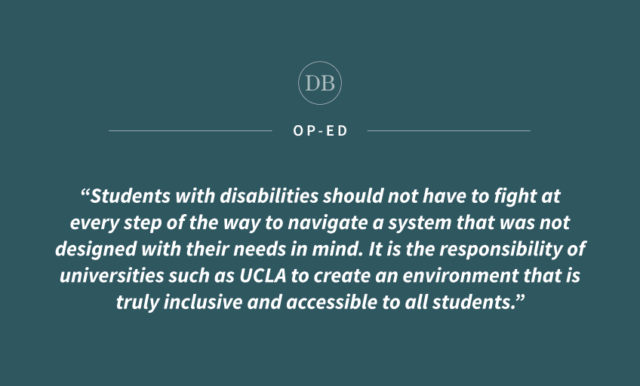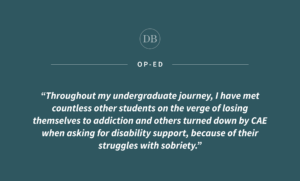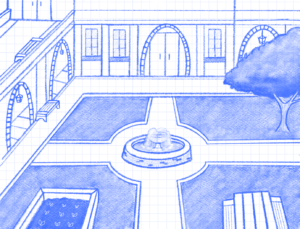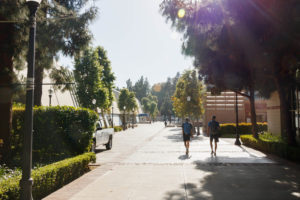This post was updated Oct. 8 at 8:07 p.m.
As a publicly-funded university that prides itself on having a diverse student body, UCLA has a legal and ethical responsibility to provide accommodations that support the unique needs of all students.
For neurodivergent students – including those with autism, sensory processing disorders, ADHD and learning disabilities – this means creating sensory-friendly spaces on campus.
While sensory processing issues are a common experience among neurodivergent individuals, they are not well understood by the general population. This is due, in part, to the fact that it can be somewhat normal for the general population to experience mild aversions to particular sensory stimuli, such as sounds or physical sensations.
However, sensory issues observed in neurodivergent populations are not the same as walking into a room that is too loud or too bright and feeling a small amount of short-term discomfort.
For many neurodivergent students, sensory processing issues manifest as physical pain and deafening anxiety, which produce clinical impairment and may render student experiences, such as attending lectures, simply not worth the effort.
These experiences are not just unpleasant, but oftentimes unbearable. Moreover, these experiences may last for extended periods and make functioning very difficult for hours or longer following exposure.
Furthermore, a large number of UCLA undergraduates, if not the majority, share their living space with one or more roommates, meaning that many neurodivergent students do not have any consistently sensory-friendly space accessible to them, ever.
Nearly every space on campus where students are allowed is filled to the brim with exorbitant sensory stimuli: the lecture halls, the dorms, the dining halls, the restaurants, the gyms and the libraries. There is almost nowhere for students with sensory issues to escape to.
At a university as large and competitive as UCLA, learning and academic success are already difficult for most students. Many students with disabilities rely on the Center for Accessible Education and work with an assigned disability specialist to receive necessary accommodations. However, there is no accommodation available that provides students with access to sensory-friendly spaces on campus because these spaces do not exist.
In addition, it is crucial that these spaces are designed in a way that is truly inclusive and accessible to all who need them. They should be located in convenient and central areas on campus to encourage their use. They should also be large enough to accommodate all students who need them and be designed with input from neurodivergent students themselves.
Many neurodivergent students have, at one point or another, felt isolated or excluded from their peers, and without such an accommodation, many may struggle to find a place where they feel safe and comfortable. This can impact their academic performance, mental health and overall well-being.
This is not just a matter of accommodation, however; it is a matter of doing the bare minimum toward achieving equity. It is important to recognize that while accommodations may reduce some inequality, they do not level the playing field.
Students with disabilities should not have to fight every step of the way to navigate a system that was not designed with their needs in mind. It is the responsibility of universities such as UCLA to create an environment that is truly inclusive and accessible to all students.
Drew Hirsch is a fourth-year cognitive science student at UCLA.






Comments are closed.